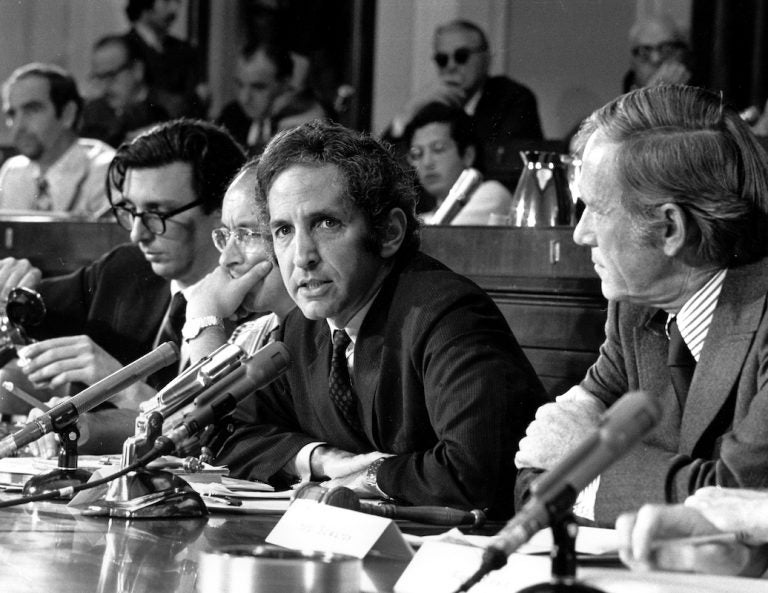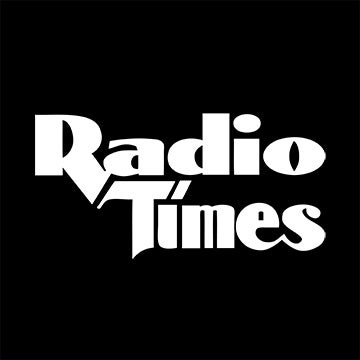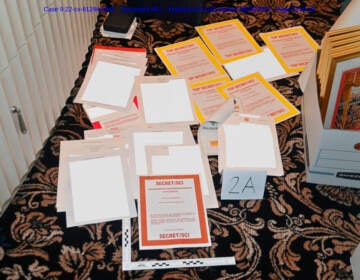Pentagon Papers at 50 and Trump’s DOJ surveillance
What did the Pentagon Papers teach us about government secrecy, press freedom and the Vietnam war? And, Trump's DOJ surveillance of Democratic lawmakers and journalists.
Listen 49:26
FILE - In this July 28, 1971 file photo, Daniel Ellsberg, former Defense Department researcher who leaked top-secret Pentagon papers to the press, speaks to an unofficial House panel investigating the significance of the war documents in Washington. (AP Photo, file)
Fifty years ago the first excerpts from the Pentagon Papers, the top secret Defense Department study on U.S. decision-making in Vietnam, were published in the New York Times and then a week later in The Washington Post. The report, which was leaked to the press by Rand analyst Daniel Ellsberg, showed that the U.S. government knew that the war in Vietnam was unwinnable and would cost many lives. This hour we look back on the Pentagon Papers, their impact on the war and public opinion and issues they raised about government secrecy, transparency, and the freedom of press. ELIZABETH BECKER is our guest, a journalist who covered the US bombing in Cambodia and author of You Do Not Belong Here, a biography of the women war correspondents of the Vietnam War. Then, we discuss the recent revelations that President Trump’s Department of Justice surveilled Democratic lawmakers and journalists in a leak investigation with former DOJ lawyer, now Temple Law professor, CRAIG GREEN.

Subscribe for more Radio Times
WHYY is your source for fact-based, in-depth journalism and information. As a nonprofit organization, we rely on financial support from readers like you. Please give today.





